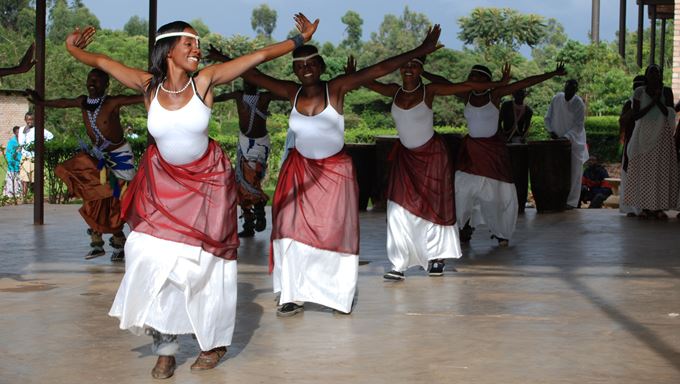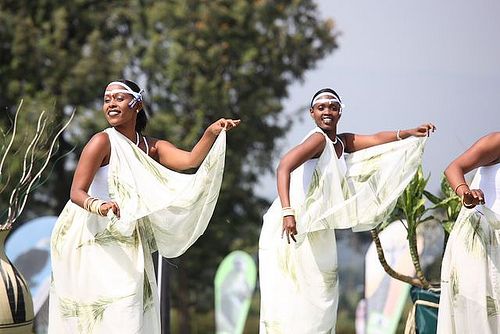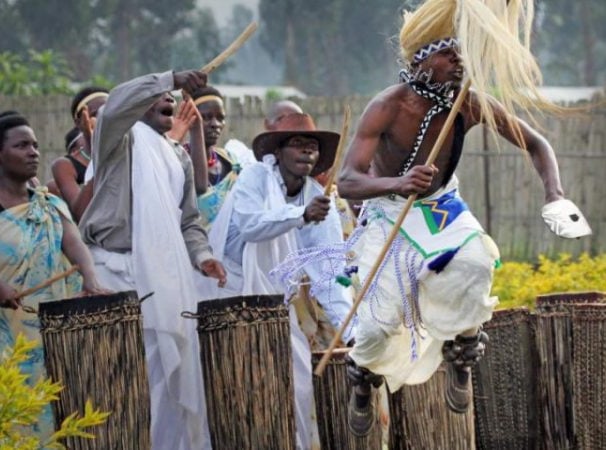The Hutu Tribe of Rwanda
Embracing the Heart of Rwanda: Cultural Tourism with the Hutu Tribe
RWANDA CULTURE


Rwanda, often referred to as the "Land of a Thousand Hills," is a nation rich in culture and history. While the country is renowned for its breathtaking landscapes and wildlife, it's also home to a vibrant tapestry of cultures, and the Hutu tribe plays a significant role in shaping the cultural heritage of Rwanda. In this blog, we invite you to embark on a cultural journey and explore the captivating world of the Hutu tribe.
The Hutu Tribe:
The Hutu people are one of the largest ethnic groups in Rwanda, known for their distinct culture, traditions, and warm hospitality. As Rwanda seeks to move beyond its complex history, it's crucial to engage with the rich cultural diversity within the nation.
Language and Communication: The Hutu people primarily speak Kinyarwanda, the official language of Rwanda. Learning a few Kinyarwanda phrases can foster meaningful interactions with the locals and convey respect for their culture.
Traditional Attire: Hutu clothing reflects both practicality and cultural significance. Women often wear colorful dresses, while men don simple yet sturdy clothing suited for the local terrain. Understanding the symbolism and cultural significance of their attire adds depth to your cultural exploration.
Ceremonies and Rituals: Hutu life is punctuated by various ceremonies and rituals, marking significant life events. Engaging with these rituals can provide insights into their belief systems and cultural traditions.
Arts and Crafts: The Hutu people have a rich tradition of arts and crafts, including pottery, basket weaving, and woodworking. Visiting local artisans and witnessing their craftsmanship can be a unique and educational experience.
Cuisine and Traditions: Rwandan cuisine, like that of the Hutu tribe, is a unique blend of flavors and traditions. Sampling traditional dishes and participating in culinary activities can be a delicious way to immerse yourself in their culture.
Music and Dance: Music and dance are integral to Hutu culture. Traditional performances, often accompanied by drums and other instruments, are vibrant expressions of their history and identity.
Hospitality and Community Bonds: Hutu communities are known for their strong sense of hospitality. A visit to a Hutu village can offer a firsthand look at their social dynamics and the warmth of their hospitality.
Preservation of Traditions: While modernization has touched many aspects of Hutu life, there is an ongoing effort to preserve their cultural heritage. The Hutu continue to pass down their traditions to younger generations, ensuring that their unique identity endures.
Conclusion: Exploring Hutu culture in Rwanda is not just a journey into the past; it is an opportunity to connect with a living culture that has adapted to the modern world while preserving its unique identity. As you interact with the Hutu people, immerse yourself in their traditions, and share stories, you'll gain a profound appreciation for the rich cultural diversity that Rwanda has to offer.
So, whether you're a cultural enthusiast, an adventurous traveler eager for authentic experiences, or someone seeking a deeper cultural understanding, consider embarking on a journey with the Hutu tribe. Rwanda's cultural heritage is a treasure waiting to be explored, and the Hutu people are your guides to a world of tradition, history, and warm hospitality in the heart of Africa




